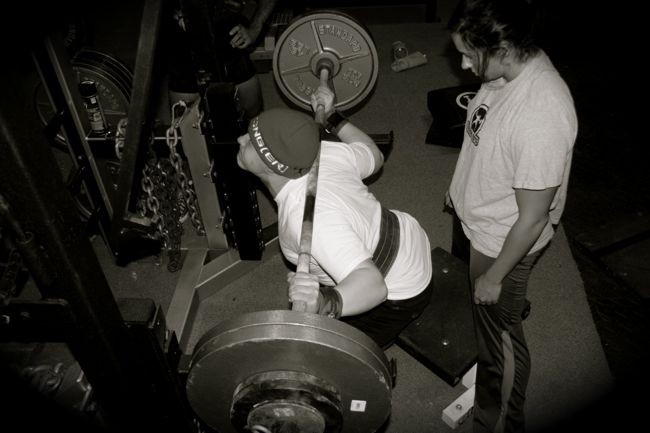
1. Sales and marketing are a must.
I don’t mean that you should buy ads all over the local paper or put up a massive billboard with buzzwords and explosive text, but you do need to market yourself and learn how to sell. Don’t think because you open shop that you’ll attract clients like bees to honey. It doesn’t work that way. Don’t naively assume because you “look the part” of a strength coach that you will sell people based upon that and your fancy certifications. You won’t.
What I learned is that the best marketing is word of mouth. Don’t expect to be fresh out of college/certification class and get a rush of clients. It’s very hard. You have to start out training people you don’t necessarily want to train, such as the athletes’ parents at the local health club—yes, as a gym trainer. You may see CSCS certification holders online who have their own businesses and are raking in top dollar at seminars. Those same people will tell you that they started out with nothing and had to work their way to the top.
If you can’t sell, you can’t make money. Period. This is painfully obvious but not always heard. The hardest part of selling is actually selling. Your charisma, talent, and drive won’t always convince parents to shell out $60–90 an hour so their 15-year-old football player can get better and make varsity. You have to learn how to listen, counter objections, talk to clients in a respectful and approachable voice, and actually close them on the sale. Just because you know your service is going to help doesn’t mean they’re going to buy it.
2. Clients don’t care about certifications.
Do you know how many clients ask me who I’m certified with? Zero. They don’t care unless they’re in the industry themselves, and most likely if they are, they wouldn’t be sending their kids to you. They would do it themselves. All they care about are results. Hell that’s all anyone cares about. So save your posturing about your NSCA, ACSM, or exercise science degree. Don’t try to impress them with stuff like “traverse abdominus.” Show them it works and they will refer you. The only person who cares about your certification is the establishment that hires you and that won’t mean anything unless you can sell and get results.
3. You must keep your ears open.
One of the biggest issues facing any beginning trainer is listening. You’re excited, eager, and ready to show everyone that you are the man! You talk to parents, coaches, gyms, and whoever will listen about how good you are and how you can help their kids. You may even tell them about your accomplishments and how you’re definitely the man for the job. All of this is good, but wait until they ask you. Your best bet is to talk to people about their kids/athletes and have them talk about their accomplishments and what they need to make them better and engage them in casual conversation around those topics. Find out what they need, and you can segue into a sales pitch or offer a free evaluation or consultation. Going into a sales pitch with an aggressive approach makes people put walls up and prevents them from talking about their kids and themselves. Make them trust you (albeit a small trust but necessary for a business relationship) and they will feel more comfortable trusting their kids to your care.
There are so many things to know before jumping into this ultra-competitive industry. I’m still learning as I go, and I made (and still make) many of these same mistakes (and more). If this can help the fresh faces avoid some of the pitfalls I’ve discovered, that’s a good thing. Don’t be too stubborn to ask the more experienced coaches/trainers for advice. More often than not, they will help and offer their words of wisdom. This is a hard field to get started in. But with the right attitude and approach, you will make it.









